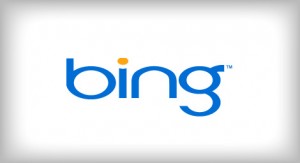 Everyone who follows the ever-changing SEO world has no doubt learned (and perhaps experienced personally) how Google's Penguin update dramatically changed how links to your website are valued. It's all in line with their overall goal of delivering better, more relevant search results for anyone who uses Google. The same basic goal holds true for Bing, Yahoo!, Ask, and the other search engines. After all, the better, more relevant results they deliver, the more likely you are to use their search engine again and again, and the more ads will get clicked on, thus increasing their revenues.
Everyone who follows the ever-changing SEO world has no doubt learned (and perhaps experienced personally) how Google's Penguin update dramatically changed how links to your website are valued. It's all in line with their overall goal of delivering better, more relevant search results for anyone who uses Google. The same basic goal holds true for Bing, Yahoo!, Ask, and the other search engines. After all, the better, more relevant results they deliver, the more likely you are to use their search engine again and again, and the more ads will get clicked on, thus increasing their revenues.
 In this case, Bing beat Google to the punch at adding a useful feature for webmasters. If you have a website, you probably have other sites linking to it (assuming you or your SEO company has been doing the job). The problem is that sometimes "bad" or otherwise unwanted sites link to other sites in the hopes that somehow that will improve their own search rankings, or that you as a webmaster will reciprocate by adding a link to their site. And sometimes SEO companies purposefully build links from "less-than-savory" sites. Maybe it's easy, maybe it's just because some SEO companies don't keep up with changes. Either way, you don't want this to hurt you.
In this case, Bing beat Google to the punch at adding a useful feature for webmasters. If you have a website, you probably have other sites linking to it (assuming you or your SEO company has been doing the job). The problem is that sometimes "bad" or otherwise unwanted sites link to other sites in the hopes that somehow that will improve their own search rankings, or that you as a webmaster will reciprocate by adding a link to their site. And sometimes SEO companies purposefully build links from "less-than-savory" sites. Maybe it's easy, maybe it's just because some SEO companies don't keep up with changes. Either way, you don't want this to hurt you.
The good/bad news is that these "bad" links now may hurt your website's search engine rankings more than they help. But don't fret, now (at least with bing) you can tell the search engines that you don't consider a link relevant and they won't count it in calculating your search engine results.
Basically how it works is that if you have bing webmaster tools installed on your site, you can go in and manage which links you don't trust, or in other words, disavow bad links. If you have hundreds of thousands of links to your site, this can be a time-consuming process, but it can at least give you a little more control.
The jury's still out, so to speak, on exactly how useful this is. It might be a better use of your efforts to, instead of focusing on disavowing bad links, focus on building more good links. Or maybe there's a balance somewhere in the middle. Disavow the obviously really bad ones, such as links from "adult" sites, obvious link farms and so on, while building more links from relevant, important, and valuable sites.
What's the real answer? Overall, it's simple - create good, unique content that people will like and share. Avoid "link spam" and don't buy trashy links. So feel free to hit the "share" and "like" buttons, and you can also post, tweet, and otherwise show your love for this article. I hope it's been helpful.
The original article is here:
This is author biographical info, that can be used to tell more about you, your iterests, background and experience. You can change it on Admin > Users > Your Profile > Biographical Info page."
About us and this blog
We are a digital marketing company with a focus on helping our customers achieve great results across several key areas.
Request a free quote
We offer professional SEO services that help websites increase their organic search score drastically in order to compete for the highest rankings even when it comes to highly competitive keywords.




